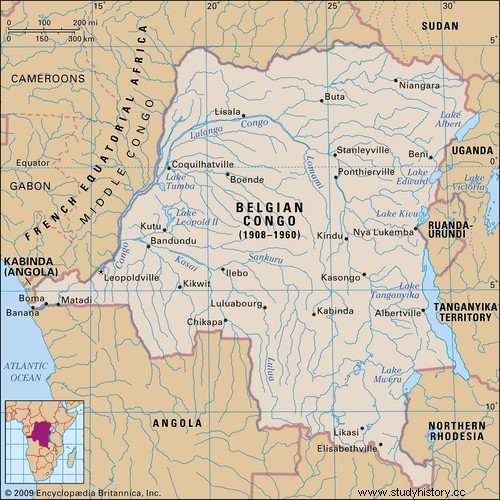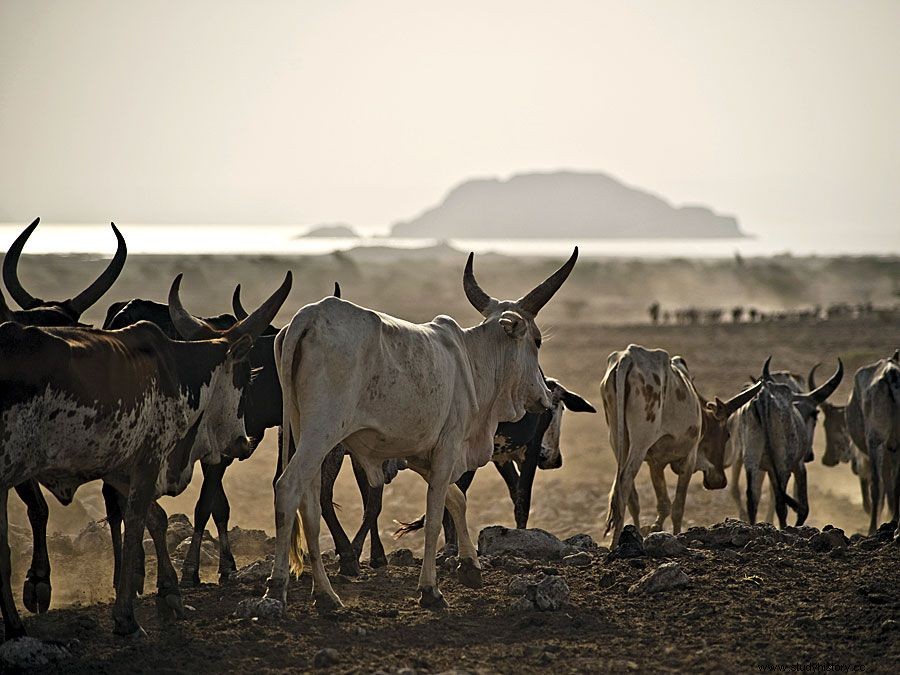Belgian Congo , French- Belgian Congo , former colony (along with today's Democratic Republic of the Congo ) in Africa, ruled by Belgium from 1908 to 1960. It was set up by the Belgian Parliament to replace the previous private company Congo Free State brought pressure to oversight and accountability following international outrage over abuses. The official Belgian attitude was patronizing:Africans should be cared for and educated like children. They had no legislative role, but traditional rulers were used as agents to collect taxes and recruit workers. uncooperative rulers were deposed. In the late 1950s when France and the United Kingdom worked with their colonies to prepare for independence, Belgium still presented the Congo as a idyllic country of parent-child relationships between Europeans and Africans.

 Britannica Quiz Destination Africa:Fact or Fiction? Is Africa's northernmost point further north than Europe's southernmost point? See if your geographical knowledge points north or south on this journey through Africa.
Britannica Quiz Destination Africa:Fact or Fiction? Is Africa's northernmost point further north than Europe's southernmost point? See if your geographical knowledge points north or south on this journey through Africa. Private European and American companies invested after the World War I heavily in the Belgian Congo . Large plantations (cultivation of cotton , oil palm, coffee, cocoa and rubber) and animal farms. Gold, diamonds, copper, tin, cobalt and zinc were mined inside; The colony was during the WWII to an important Uranium source for the United States . Africans worked in the mines and plantations as indentured workers on four to seven year contracts under a law passed in Belgium in 1922. Roads, railroads, power stations, and public buildings were replaced by Forced Labor built .
The African resistance challenged the colonial regime from the start. In several eastern districts, an uprising broke out in 1919, which was not suppressed until 1923. Anti-European religious groups were active in the 1920s, including the Kimbanguism and the Negro Mission to the west and Kitawala to the southeast. Unrest increased during the depression years (1931-36) and during World War II. Since political associations were forbidden at the time, reformers organized themselves into cultural clubs like Abako, a association founded in 1950 in Bakongo . The first nationwide Congolese political party , the Congo national movement, was founded in 1958 by Patrice Lumumba and other Congolese leaders. In January 1959, riots broke out in Leopoldville (now) Kinshasa ) after a rally calling for Congo independence. Later that year, violent clashes also erupted between Belgian forces and the Congolese, and Belgium, which previously claimed that Congo independence was not possible in the near future, surrendered suddenly and began preparing for Congo independence. Congo became an independent republic on June 30, 1960.
